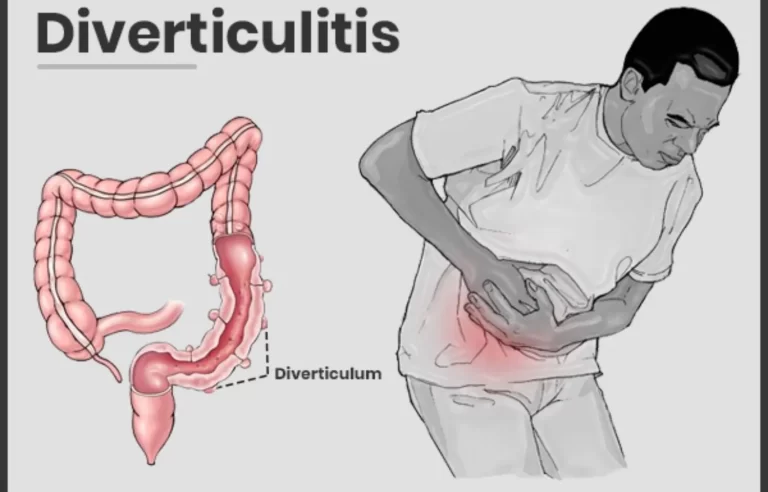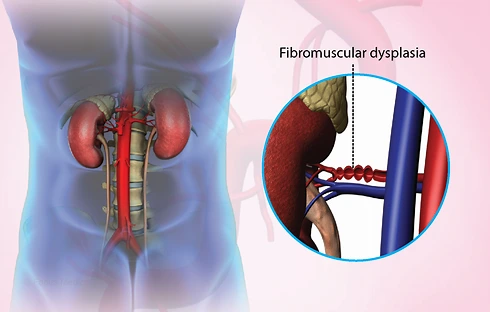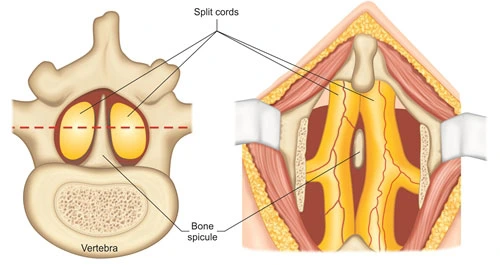Goiter
What is a Goiter?
A goiter is a swelling or enlargement of the thyroid gland, a butterfly-shaped organ located at the base of the neck. This condition is typically non-cancerous and is often caused by an underlying thyroid disorder, such as hypothyroidism or hyperthyroidism.
- Thyroid nodules are little lumps that may develop on your thyroid, or it might enlarge completely.
- Located in the center of your neck, under Adam’s apple, is a tiny, butterfly-shaped endocrine gland called the thyroid gland. It is the source of the hormones triiodothyronine (commonly known as T3) and thyroxine (also known as T4). These hormones are involved in some biological processes, such as:
- Metabolism.
Body temperature.
Mood and excitability.
Pulse and heart rate.
Digestion.
The condition may be linked to either normal thyroid hormone levels (euthyroidism) or abnormal thyroid hormone levels (hyperthyroidism or hypothyroidism). - The condition can have some reasons. Treatment could be necessary or not, depending on the underlying reason.
What are the types of Goiter?
- Goiter can be categorized according to several factors, such as the mechanism of growth and the presence or absence of abnormal thyroid hormone levels.
- Goiter is categorized according to how it grows, and they include:
- Simple (diffuse) goiter: This kind of goiter occurs when the thyroid gland enlarges completely and becomes smooth to the touch.
- Nodular goiter: This kind of goiter arises when your thyroid produces a lumpy, solid lump (called a nodule) that is filled with fluid.
- Multinodular goiter: This kind of goiter develops when your thyroid has several lumps. The nodules might be obvious or only detected by scans or inspection.
- Based on the levels of thyroid hormone, goiter can be classified as follows:
- Toxic goiter: When your thyroid is enlarged and overproduces thyroid hormone, goiter occurs.
- Nontoxic goiter: It’s a harmless goiter if you have an enlarged thyroid but normal thyroid function (euthyroid). To put it another way, neither hypothyroidism nor hyperthyroidism (an overactive or underactive thyroid) affect you. When diagnosing different forms of goiter, medical professionals mix these descriptions to define the condition. For instance, a toxic multinodular goiter develops when your thyroid produces more thyroid hormone than usual from several nodules, generally multiple.
Who does Goiter affect?
- A goiter can affect anybody, but those who are allocated as female at birth have an approximately four-fold higher chance of developing one than those who are classified as male. As you become older, your chance of getting goiter also increases. After 40, they become more prevalent.
Goiter, who may also be more common in those with any of the following conditions:
- Obesity.
- Insulin resistance.
- Metabolic syndrome.
- Additionally, you have a higher chance of getting goiter if you have a family history of thyroid illness or if you have had radiation therapy on your head and neck.
How common is Goiter?
- Goiter occurs often. Approximately 5% of Americans are impacted by them.
- Iodine deficiency is the most prevalent cause of goiters globally, affecting an estimated 2.2 billion individuals.
- One’s risk of developing goiter increases with the severity of their iodine deficiency:
- In moderate cases of iodine shortage, goiter can occur in 5–20% of cases.
Moderate iodine deficiency results in a 20% to 30% prevalence rise.
Symptoms of Goiter
A goiter might be tiny and almost perceptible or big and visible. The majority of goiters don’t hurt, but they can if you have thyroiditis, which is an inflammation of the thyroid gland.
The main symptoms of goiter include:
- An area below your Adam’s apple at the front of your neck.
- A narrowing in the region of your throat.
- Hoarseness (scratchy voice).
- Enlargement of the neck veins.
- vertigo while raising your arms above your head.
Other, less typical symptoms consist of:
- Difficulty breathing (shortness of breath).
- Coughing.
- Wheezing (due to squeezing of your windpipe).
- swallowing difficulties (caused by pinching of the esophagus).
- A goiter can sometimes be accompanied by hyperthyroidism (overactive thyroid).
Symptoms of hyperthyroidism include:
- Rapid heart rate (tachycardia).
- Unexplained weight loss.
- Diarrhea.
- Sweating without exercise or increased room temperature.
- Shaking.
- Agitation.
Goiter patients who simultaneously have hypothyroidism (underactive thyroid) are not uncommon. Symptoms of hypothyroidism include:
- Fatigue (feeling tired).
- Constipation.
- Dry skin.
- Unexplained weight gain.
- Abnormal menstruation (periods).
Causes of Goiter
Goiter is your thyroid cells’ adaptive response to any mechanism that prevents the creation of thyroid hormones. Goiter can be caused by a variety of diseases, however, iodine deficiency is the most prevalent cause in the entire world.
Causes of goiter include:
- Iodine deficiency: Iodine is necessary for your thyroid to make thyroid hormone. Your thyroid produces more cells in an attempt to produce more thyroid hormone if your diet is deficient in iodine. Although it is the most frequent cause of goiter globally, it is uncommon in the US. By consuming fish and seafood, dairy products, and iodized salt, you may ensure that your diet has the required quantity of iodine. For most people, taking iodine supplements is not advised as they may have unexpected negative health effects.
- Graves’ disease: An autoimmune condition known as Graves’ disease causes your thyroid to swell up because your immune system is attacking it. Treatment is necessary for hyperthyroidism, another complication of Graves’ illness.
- Hashimoto’s disease: This is an autoimmune condition that makes your thyroid gland inflamed. There are certain Hashimoto’s disease patients that have a compensatory enlargement of the thyroid gland. Over time, this kind of goiter typically heals on its own. Hormone therapy for Hashimoto’s disease is necessary in certain circumstances.
- Thyroid cancer: Thyroid gland cancer frequently causes enlargement of the thyroid.
- Pregnancy: A person’s thyroid can enlarge when they generate the hormone known as human chorionic gonadotropin during pregnancy.
- Thyroiditis: Thyroid gland growth may result from thyroid gland inflammation. This may occur for several reasons.
- Most of the time, sporadic goiters have no identified cause. This kind of goiter may come from specific medications. Lithium is one medication that might induce this kind of goiter. It is used to treat many medical illnesses as well as mental health issues.
Diagnosis and Tests:
How is goiter diagnosed?
- Your doctor frequently diagnoses goiter after doing a physical examination and finding that you have an enlarged thyroid. A goiter, however, may indicate that your thyroid gland isn’t working well. They will need to determine the issue.
- To identify and assess goiter, your physician may do some tests, such as the following:
- Physical exam: Your doctor may palpate the area around your neck, feeling for lumps or uncomfortable places, to identify an enlarged thyroid gland.
- Thyroid blood test: Your thyroid’s regular functioning can be determined by the thyroid hormone levels this blood test measures.
- Antibody test: This blood test looks for certain antibodies produced by different forms of goiter. Antibody-producing white blood cells generate these proteins. The body employs antibodies to help protect itself from external invaders (like viruses) that might cause disease or infection.
- Thyroid ultrasound: Ultrasound techniques employ high-frequency sound waves to penetrate bodily tissues. Images or videos are created by capturing the echoes. Your healthcare professional may “see” your thyroid to evaluate its size and whether any nodules are present.
- Biopsy: The procedure known as a biopsy involves removing a sample of tissue or cells for examination in a lab. You may need a thyroid biopsy if there are large nodules on your thyroid gland. To rule out cancer, a biopsy is done.
- Thyroid uptake and scan: This imaging test shows the size and function of your thyroid. This test injects a small amount of radioactive material into a vein to produce an image of your thyroid on a computer screen. Providers do not order this test very often since they only request it under certain circumstances.
- Thyroid CT scan or magnetic resonance imaging (MRI): A CT scan or MRI is performed to measure the size and spread of the goiter if it is really big or grows into your chest.
Treatment of Goiter
Do goiters disappear by one another?
- A simple goiter may appear for a brief period and then disappear on its own without medical intervention.
- Numerous goiters, including multinodular goiter, are linked to normal thyroid hormone levels. When your healthcare professional detects these goiters, they often don’t need any special treatment. On the other hand, you can eventually become hyper- or hypothyroid after this.
- Even if your thyroid gland is enlarged, you should still visit your doctor since goiters can have some reasons, some of which need medical attention.
How is Goiter treated?
- The size of your thyroid, the symptoms, and the origin of the goiter all affect how it is treated. Among the treatments are:
- No treatment/”watchful waiting”: Your doctor may determine that there is no need to treat a tiny goiter if it is not hurting you. They will, nonetheless, closely watch your thyroid to look for any changes.
- Medications: One thyroid hormone replacement medication is levothyroxine. If hypothyroidism (underactive thyroid) is the reason for the goiter, your doctor will probably prescribe it. If an overactive thyroid (hyperthyroidism) is the source of the goiter, further drugs are suggested. Propylthiouracil and methimazole are two of these medications. If your goiter is due to inflammation, your doctor may give aspirin or a corticosteroid drug.
- Radioactive iodine treatment: Radioactive iodine is taken orally as part of this therapy for hyperactive thyroid glands. When iodine enters your thyroid gland, it destroys thyroid cells, causing the gland to shrink. You will probably require thyroid hormone replacement medication for the remainder of your life following radioactive iodine treatment.
- Surgery: Your doctor could advise a thyroidectomy or the removal of all or part of the thyroid gland. If the goiter, especially is as big and causing difficulty eating and breathing, you may require surgery. Nodules can also occasionally be removed surgically. If there is cancer, surgery is required. You could require thyroid hormone replacement treatment for the remainder of your life, depending on the extent of thyroid gland removal.
Prevention
Simple goiter, or goiter caused by an iodine deficit is usually the only kind that may be avoided. These kinds of goiters can be avoided by eating fish, dairy products, and a moderate quantity of iodized table salt in one’s diet. Supplements containing iodine and other elements are usually not advised as they may cause more damage than good.
Summary
Your thyroid gland enlarges when you have a goiter. Thyroid nodules are little lumps that may develop on your thyroid, or it might enlarge completely.
Located in the center of your neck, under Adam’s apple, is a tiny, butterfly-shaped endocrine gland called the thyroid gland. It is the source of the hormones triiodothyronine (commonly known as T3) and thyroxine (also known as T4). These hormones are involved in some biological processes, such as:
Metabolism.
Body temperature.
Mood and excitability.
Pulse and heart rate.
Digestion.
The condition may be linked to either normal thyroid hormone levels (euthyroidism) or abnormal thyroid hormone levels (hyperthyroidism or hypothyroidism).
The condition can have some reasons. Treatment could be necessary or not, depending on the underlying reason.
FAQs
What are goiter’s causes?
Iodine deficiency is the most common cause of goiter. If your diet is deficient in iodine, your thyroid will enlarge in an attempt to absorb as much iodine as possible so that it can produce the proper quantity of thyroid hormone.
Is goiter curable?
The good news is that goiter can occasionally be treated on its own and disappear on its own. See your doctor if you discover a bump in the front of your neck. They can identify the underlying reason and decide whether it’s goiter.
Which drug is prescribed for goiter?
Levothyroxine (Levoxyl, Thyquidity, and other brands) is a medication that takes the place of T-4, causing the pituitary gland to release less TSH. As a T-3 substitute, liothyronine (Cytomel) may be administered. The goiter’s size could shrink as a result of these therapies. to lessen the synthesis of hormones.
What goiter symptoms are present?
A goiter causes swelling around the base of the neck, which can manifest as a single nodule, several tiny lumps, or a generalized enlargement on one or both sides of the neck. You could additionally have a raspy voice. constriction in your throat. vertigo while raising your arms.
Reference:
- Professional, C. C. M. (n.d.). Goiter. Cleveland Clinic. https://my.clevelandclinic.org/health/diseases/12625-goiter
- Macon, B. L. (2019, December 13). What You Need to Know About Goiter. Healthline. https://www.healthline.com/health/goiter-simple
- MacGill, M. (2023, April 21). Everything you need to know about a goiter. https://www.medicalnewstoday.com/articles/167559







